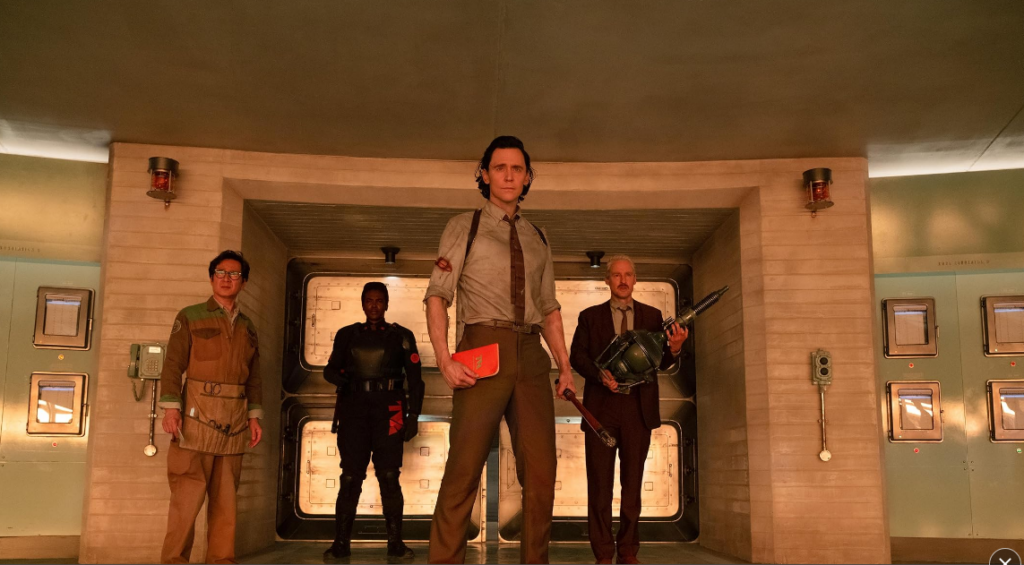
As Loki sits on his finally secured throne, a Tree of Life forms with our titular character in the center. It’s an apt image — at a time when it seems like superhero cinema is on the decline, “Loki” is a rare green shoot amongst the barren expanse of the Marvel Cinematic Universe (MCU), reminding viewers why they love heroes.
Offering a fresh take on what comic fans have come to expect from big-budget companies, “Loki” is philosophically complex, emotionally rich and full of difficult mental battles. This atypical superhero conflict delves into the nuances of the science fiction film genre.
The season picks up right where it left off. At first, I was worried Season 2 would just wrap up the riveting ending from the first season and, honestly, it starts that way. However, over time the season truly develops a voice of its own, presenting a new redefined notion of heroship.
Loki’s character arc is surprising and unexpected. We watch as a character who has already grown so much transforms yet again. The ending of this season leaves the viewer again wondering where his journey will take him. While watching, one looks back onto themselves and ponders the growth we may still have yet to endure.
Forced to confront his own destiny, Loki’s journey is similar and yet poignantly different to that of his brother Thor, the mighty God of Thunder. While Thor finds an inner power beyond his hammer over the course of his arc from 2011’s “Thor” to 2019’s “Endgame,” Loki finds a purpose separate from his fated life. Loki discovers free will and chooses to make a sacrifice to provide that gift to those he loves. By the season finale, Loki embodies ideas more like freedom, love and life, yet regret, shame and poignancy all the same.
One notable feature of this release is that there were no reshoots, a shocking accomplishment for the MCU. This is evidence of the fluid and continued story being told by a team of four directors: Justin Benson, Aaron Moorhead, Dan Deleeuw, and Kasra Farahani, who knew what they wanted to do with “Loki” and did exactly that. It seems the show was relatively free from the influence of the so-called MCU Parliament, a collection of executives and bigwigs that typically controls the production of all films: there was no obvious setup for some other MCU project, awkward money grab or overwhelming purpose outside of creating an enjoyable and true-to-the-character story. Hopefully, this will serve as a message to at least Disney and potentially other film giants to let directors share their visions.
The story is not the only polished element of this production: the effects are equally amazing. Watching the characters travel through time — especially the ending when Loki pulls his way through threadlike timelines — the visuals vividly enhance the viewing experience. Additionally, they are all very consistent. It is clear that the story is connected in both writing and visuals.
My emphasis on the show’s ending is not to discount the rest, as each episode is rich in fun events and intense plots. Instead, this focus is indeed a reflection of the arc of the show itself. Every moment is building, every conversation and plot line is a part of this greater force crescendoing in its final moments. This collective plotline leads MCU’s new experimental project to be both binge-able and very successful.
The show reaches back into every silly moment and joke of Loki, and makes us all feel like him. Tragedy, sadness and pain, yet possibility and love all combine — weaving together to form the violent fabric of hope we all strive for. That very well may be the message we’re meant to walk away with: Hope is chaotic and difficult to bear, and sometimes hope is wrong but at the end of the day, hope is familiar and beautiful, and we need hope. Maybe this is what Loki has been redefined as — he is no longer the trickster, or mischief incarnate; he is Loki, God of Hope.














